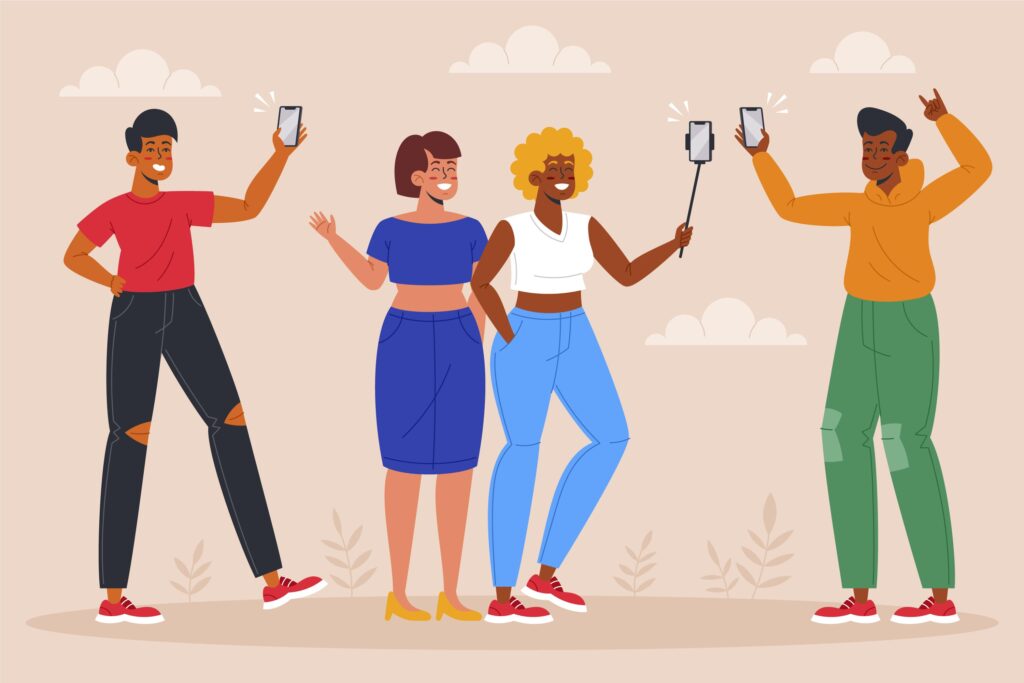Infatuation is a powerful feeling that can be both exhilarating and dangerous. It’s important to understand how to recognize the signs of infatuation and how to avoid getting blinded by it. Infatuation is characterized by intense feelings of attraction, but it is not the same as true love. In this article, we will explore how to avoid getting blinded by infatuation and make more rational decisions about relationships.
Recognize the signs of infatuation

One of the first steps in avoiding getting blinded by infatuation is recognizing the signs of it. It can be difficult to distinguish infatuation from true love, but there are some key differences. Infatuation is often characterized by an intense physical attraction, while true love is based on an emotional connection. It’s also important to understand that infatuation is usually focused on one aspect of the person, such as their appearance, while true love involves loving the person as a whole.
Focus on reality, not fantasy
Another important step in avoiding getting blinded by infatuation is focusing on reality, not fantasy. Infatuation can cause people to idealize their partner and ignore any potential red flags. It’s important to keep expectations realistic and consider long-term compatibility when evaluating a relationship. This means being aware of the person’s values, personality, and how they treat others.
Practice self-reflection
Practicing self-reflection is key to avoid getting blinded by infatuation. Understanding your own patterns and triggers can help you avoid getting caught up in the intensity of infatuation and instead focus on the reality of the relationship. It’s also important to identify and address any emotional baggage you may have that could be clouding your judgement.
Take things slow
Taking things slow is crucial when it comes to avoiding getting blinded by infatuation. Rushing into a relationship can cause you to overlook important red flags or differences that could make the relationship unsustainable in the long term. Instead, take your time getting to know the person and build a strong foundation of friendship before becoming romantic.
Keep perspective
Keeping perspective is essential in avoiding getting blinded by infatuation. Seeking the advice of friends and family, who can provide a more objective view of the situation, can help you avoid getting caught up in the intensity of infatuation. Remember that infatuation is not sustainable in the long-term, and it’s important to keep this in mind when evaluating a relationship. Also, try to remind yourself that the person you’re infatuated with is also a human being, with flaws and imperfections. Keeping perspective can help you make more rational decisions about a relationship.
Trust your gut
Listen to your intuition
Trusting your gut is important when it comes to avoiding getting blinded by infatuation. Your intuition can give you insight into your true feelings and help you recognize when something isn’t right. If something feels off or you’re having second thoughts, it’s important to listen to your intuition and take it seriously. It can be easy to ignore your gut when you’re caught up in the intensity of infatuation, but it’s important to trust your instincts in order to make more rational decisions.
Don’t ignore red flags
Additionally, don’t ignore any red flags that may come up. Your gut feeling might be telling you something is wrong, pay attention to it. It’s important to address any concerns or issues that come up early on in a relationship, rather than ignoring them and getting too invested.
Have a balance of alone time and time with your partner
Maintain individual identity
Having a balance of alone time and time with your partner is crucial in avoiding getting blinded by infatuation. It’s important to maintain your individual identity and interests outside of the relationship. Having separate hobbies, friends and time for yourself can help you maintain a sense of self and avoid getting too wrapped up in the relationship.
Quality time

Additionally, having alone time can actually enhance the quality of the time spent with your partner. When you come back to the relationship, you will come with a fresh perspective, new things to talk about and a healthier dynamic.
Communicate your feelings honestly
Be open and honest
Communicating your feelings honestly is important in any relationship, but it’s especially important when it comes to avoiding getting blinded by infatuation. Being open and honest about your feelings can help set realistic expectations for the relationship and prevent disappointment or misunderstandings. It can also help you better understand your own feelings and the feelings of your partner. By being honest, you can avoid getting too invested in a relationship that may not be a good fit for you.
Avoid assumptions
Another benefit of communicating honestly is that it can avoid assumptions. Miscommunication can lead to misunderstandings, and it can be difficult to know if the feeling is mutual or not. Being open and honest about your feelings can prevent misunderstandings and ensure that both you and your partner are on the same page.
Don’t put all your eggs in one basket
Keep your options open
Don’t put all your eggs in one basket when it comes to dating. It’s important to keep your options open and not become too invested in one person too quickly. By keeping your options open, you can avoid getting too caught up in infatuation and instead make more rational decisions about who to pursue a relationship with.
Conclusion
In conclusion, avoiding getting blinded by infatuation requires recognizing the signs of infatuation, focusing on reality, practicing self-reflection, taking things slow, and keeping perspective. By following these tips, you can make more rational decisions about relationships and avoid getting caught up in the intensity of infatuation. Remember that infatuation is temporary, and it’s important to make decisions that are realistic and practical in the long-term.


